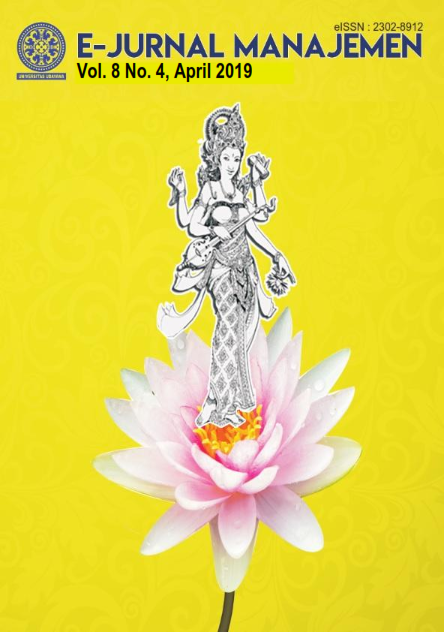PERAN EMPOWERMENT DALAM MEMODERASI PENGARUH KOMUNIKASI INTERPERSONAL TERHADAP IMPLEMENTASI INOVASI BEHAVIOR PADA KARYAWAN SARDINNE RESTAURANT
Abstract
The purpose of this study is to refresh the role of empowerment in moderating the influence of interpersonal communication on the implementation of behavioral innovation at the employees of Sardine Restaurant Seminyak Bali. In this study used the census method (total sampling) in determining the sample of 57 respondents, through moderation analysis techniques (MRA). Based on the results of the analysis can be seen that interpersonal communication has a positive and significant impact on the implementation of behavioral innovation in employees of Sardine Restaurant Seminyak Bali. Empowerment has a positive and significant influence on the implementation of behavioral innovation at the employees of Sardine Restaurant Seminyak Bali. Empowerment is able to moderate the positive relationship of interpersonal communication to the implementation of behavioral innovation at the employees of Sardine Restaurant Seminyak Bali. Suggestions that should be done empowerment related to employee behavior, therefore the company must foster its employees by doing learning to complete the work that has its own creations in completing the work either in the kitchen, biotic, ordering table in improving.
Keywords : interpersonal communication, empowerment, implementation innovation behavior





















